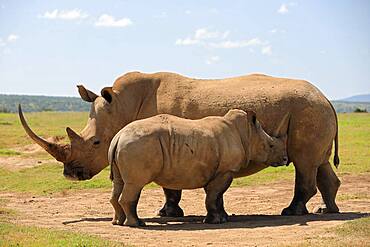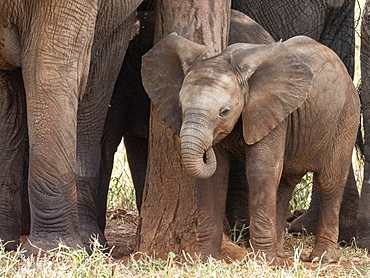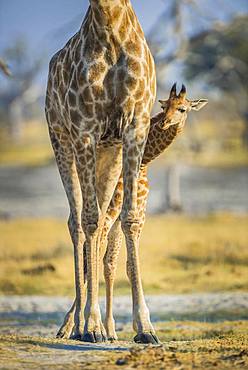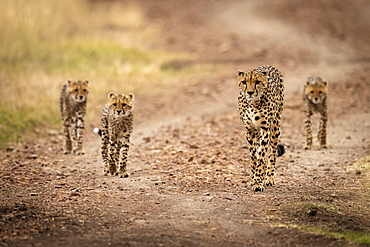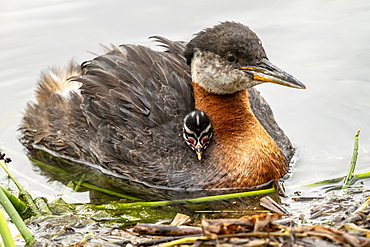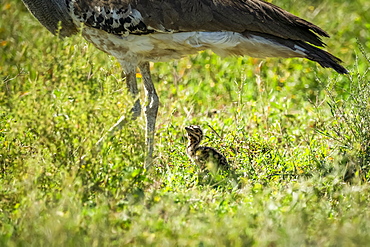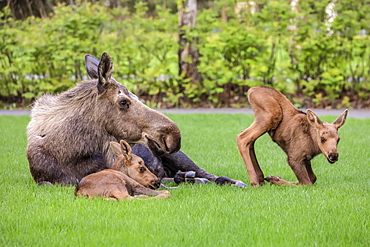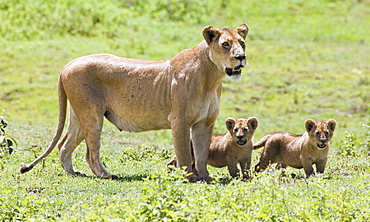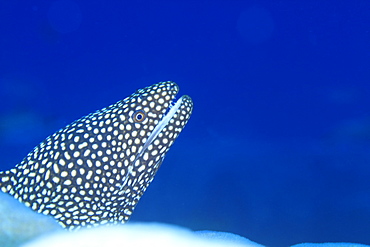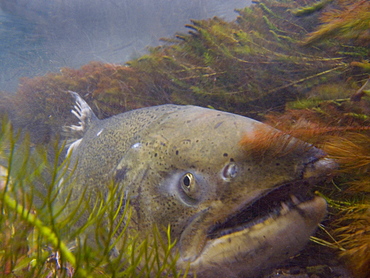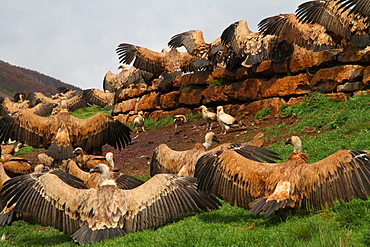Recent searches
Loading...
832-389723 - Mother wearing a respirator breastfeeds her newborn baby in hospital
832-389824 - White rhinoceros (Ceratotherium simum), mother with young, Solio Ranch Wildlife Sanctuary, Kenya, Africa
832-389186 - Gosling of a Greylag goose ( anser anser) in back plumage, chick, cute, protection, sheltered, Hannover, Lower Saxony, Germany, Europe
832-389392 - Discarded respirators, street, autumn leaves, Schliersee, Bavaria, Germany, Europe
1112-5382 - A herd of African bush elephants (Loxodonta africana), protecting a newborn calf in Tarangire National Park, Tanzania, East Africa, Africa
832-388326 - Train ride with mouth protection mask, man working on laptop, Germany, Europe
832-387928 - Mutter legt Tochter Mundschutzmaske an, Stadtpark, Corona-Krise, Regensburg, Bayern, Deutschland
832-386298 - Angolan Giraffes (Giraffa camelopardalis angolensis), young looking out from behind mother's legs, detail view, Moremi Wildlife Reserve, Ngamiland, Botswana, Africa
832-386788 - Locker with key in a financial institution, Duesseldorf, Germany, Europe
809-7951 - Coronavirus (COVID-19) epidemic, Christian praying rosary beads with protecting glove, France, Europe
1116-47922 - Cheetah (Acinonyx jubatus) and three cubs walk down road, Maasai Mara National Reserve, Kenya
1116-47489 - Plains zebra (Equus quagga) stands eyeing camera with foal, Serengeti National Park, Tanzania
1116-48626 - Vervet monkey (Chlorocebus pygerythrus) mother and baby in tree, Serengeti National Park, Tanzania
1116-47912 - Cheetah (Acinonyx jubatus) sits side-by-side with cub in grass, Maasai Mara National Reserve, Kenya
1116-48478 - Mother Polar bear (Ursus maritimes) standing in the snow assessing danger, Churchill, Manitoba, Canada
1116-47923 - Cheetah (Acinonyx jubatus) and four cubs facing away, Maasai Mara National Reserve, Kenya
1116-47610 - Cow moose (Alces alces) with calf rests on green grass in East Anchorage, Alaska's State mammal, South-central Alaska, Alaska, United States of America
1116-47603 - Red-necked grebe (Podiceps grisegena) with chick at the water's edge of Cheney Lake, South-central Alaska, Alaska, United States of America
1116-47857 - A father holds a newborn baby, Surrey, British Columbia, Canada
1116-47948 - Parents spending time at home with a newborn baby girl, Surrey, British Columbia, Canada
1116-47524 - Close-up of lion cubs (Panthera leo) playing near mother, Serengeti National Park, Tanzania
1116-47913 - Cheetah (Acinonyx jubatus) sits in grass with three cubs, Maasai Mara National Reserve, Kenya
1116-47947 - Young family spending time at home with a newborn baby girl, Surrey, British Columbia, Canada
1116-47280 - Close-up of a gold statue on a decorative building facade, Bruges, Belgium
1116-47499 - Close-up of kori bustard (Ardeotis kori) legs with chick, Serengeti National Park, Tanzania
1116-47853 - A mother holds a newborn baby, Surrey, British Columbia, Canada
1116-47736 - Stone wall protection for grapevines on a volcanic landscape, Lanzarote, Canary Islands, Spain
1116-47612 - Cow moose (Alces alces) with calves rests on green grass in East Anchorage, Alaska's State mammal, South-central Alaska, Alaska, United States of America
1116-47856 - A father holds a newborn baby, Surrey, British Columbia, Canada
1116-47289 - Falkland steamer duck (Tachyeres brachypterus) with chicks on the beach, Saunders Island, Falkland Islands
860-288319 - Vineyard, Rural landscape, Tiagua, Lanzarote Island, Unesco Biosphere Reserve, Canary Islands, Spain, Europe
860-288318 - Vineyards, Rural landscape, Volcanic landscape, La Geria, Lanzarote Island, Unesco Biosphere Reserve, Canary Islands, Spain, Europe
860-288320 - Vineyards, Rural landscape, Volcanic landscape, La Geria, Lanzarote Island, Unesco Biosphere Reserve, Canary Islands, Spain, Europe
1116-44955 - Sow With Cubs Play At Brooks Falls, Katmai National Park, Southwest Alaska
1116-44954 - Sow With Cubs Play At Brooks Falls, Katmai National Park, Southwest Alaska
1116-44274 - Pink Salmon (Oncorhynchus Gorbuscha) Probes Her Redd While Her Alpha Male Guards In An Alaska Stream During Summer.
860-287468 - Wild dog (lycaon pictus) protecting from the rain under a tree in the savannah, Serengeti, Tanzania
860-287591 - Pyrenean Mountain Dog and flock of sheep in an alpine pasture, Queyras Regional Nature Park, Alps, France
860-287592 - Shepherd with its Pyrenean Mountain Dogs and flock in an alpine pasture, Queyras Regional Nature Park, Alps, France
860-287550 - Protection of Arctic Terns, experimental device against gulls, Isle of May, Scotland
1174-5928 - Light house overlooking ocean, Long Beach, Washington, USA
1174-5678 - Statues lining steps in temple garden, Honshu island, Japan, Asia, Honshu island, Japan, Asia
832-381571 - Aerial view, wind turbines on Rosskopf mountain, Freiburg im Breisgau, Baden-Wuerttemberg, Germany, Europe
832-380520 - Avalanche control on the mountain slope with snow, Nauders, Tyrol, Austria, Europe
1116-39678 - A young Spinner Dolphin (Stenella longirostris), leaps into the air beside it's mother, off the island of Lanai, Lanai, Hawaii, United States of America
1116-40925 - Coyote (Canis Latrans) At Edge Of Forest, Montana, Usa
1116-39720 - This male Ring-tailed Cardinalfish (Ostorhinchus aureus) is protecting and incubating it's eggs by carrying them in his mouth, Philippines
1116-40924 - Red Fox (Vulpes Vulpes) On Sandstone Boulder, Utah, Usa
832-379276 - Suricate (Suricata suricatta), adult with young on the lookout, during the rainy season in green surroundings, Kalahari Desert, Kgalagadi Transfrontier Park, South Africa, Africa
1184-2343 - Mother with baby baboon on Mount Souda, highest mountain in Saudi Arabia, Abha, Saudi Arabia, Middle East
733-7640 - Endemic Red Colobus monkey (Piliocolobus), Jozani Forest, Jozani Chwaka Bay National Park, Island of Zanzibar, Tanzania, East Africa, Africa
733-7637 - Endemic Red Colobus monkey (Piliocolobus), Jozani Forest, Jozani Chwaka Bay National Park, Island of Zanzibar, Tanzania, East Africa, Africa
358-668 - A male New Zealand sea lion (Hooker's sea lion) guards juvenile females of the species on Allans Beach, Otago Peninsula, Otago, South Island, New Zealand, Pacific
358-669 - A male New Zealand sea lion (Hooker's sea lion) guards juvenile females of the species on Allans Beach, Otago Peninsula, Otago, South Island, New Zealand, Pacific
1247-51 - A couple walking up the hill in Castle Combe with an umbrella protecting them from the heavy snowfall, Wiltshire, England, United Kingdom, Europe
857-94470 - SABATTUS, ME - FEBRUARY 19, 2017: An immature bald eagleHaliaeetus leucocephalus fends off a rival while protecting a pike on frozen Sabattus Pond, in Sabattus, Maine. Ice fishermen on the popular winter fishing spot often leave fish they don't want to keep, for the eagles to feed on. Occasionally eagles will steal a fish, left unguarded on the ice, that was meant for the fisherman's dinner.
797-13013 - Greece, Attica, Athens, Greek soldier, an Evzone, beside Tomb of the Unknown Soldier, outside Parliament building.
764-5934 - Chacma Baboon (Papio ursinus) mother and infant, Kruger National Park, South Africa, Africa
1225-596 - In the spring the glacier begins to melt but some of the bigger rocks create shadow areas protecting the ice underneath, Khumbu Region, Nepal, Himalayas, Asia
764-5438 - Pronghorn (Antilocapra americana) doe and two days-old fawns, Yellowstone National Park, Wyoming, United States of America, North America
743-1318 - Snow monkey (Macaca fuscata) group with baby cuddling together in the cold, Japanese macaque, captive, Highland Wildlife Park, Kingussie, Scotland, United Kingdom, Europe
1112-2986 - Gentoo penguin (Pygoscelis papua) adult on nest with young chicks on Cuverville Island, Antarctica, Polar Regions
1112-2985 - Gentoo penguin (Pygoscelis papua) adult on nest with young chicks on Cuverville Island, Antarctica, Polar Regions
1199-322 - Spring lambs, Dorset, England, United Kingdom, Europe
764-5191 - Common ostrich (Struthio camelus) female with two chicks, Kgalagadi Transfrontier Park encompassing the former Kalahari Gemsbok National Park, South Africa, Africa
764-5192 - Common ostrich (Struthio camelus) male with two chicks, Kgalagadi Transfrontier Park encompassing the former Kalahari Gemsbok National Park, South Africa, Africa
764-5080 - Cheetah (Acinonyx jubatus) mother and cub, Serengeti National Park, Tanzania, East Africa, Africa
764-5047 - Cheetah (Acinonyx jubatus) mother and cub, about a month old, Serengeti National Park, Tanzania, East Africa, Africa
857-91073 - November 7, 2008 Mt Shasta CA A spawned-out Chinook salmon watches over her redd in the Shasta River where it runs through Big Springs Ranch about 2 miles north of the town of Mt Shasta. The ranch, which is contributing to degraded habitat conditions, which actually warm water tempt by upwards of 10 degrees as the river passes through the ranch and then spills into the Klameth, is currently under contract for purchase by TNC, therefor TNC and partner organizations have been allowed to research this stretch of river for the first time. They have discovered that is it a very fertile juvenile rearing area and that there are a surprising number of returning salmon in spite of habitat degraded by grazing cattle (often in the river) and irrigation practices. If this purchase is successful, TNC has the chance to improve a large stretch of habitat and quickly improve conditions that will effect numbers of returning fish and habitat in the Shasta and Klameth Rivers. In California, The Nature Conservancy is focusing its efforts on protecting the Shasta River and its tributaries, which create one of the most important spawning nurseries for Chinook salmon in the entire Klamath Basin, United States of America
857-91074 - November 7, 2008 Mt Shasta CA A spawned-out Chinook salmon watches over her redd in the Shasta River where it runs through Big Springs Ranch about 2 miles north of the town of Mt Shasta. The ranch, which is contributing to degraded habitat conditions, which actually warm water tempt by upwards of 10 degrees as the river passes through the ranch and then spills into the Klameth, is currently under contract for purchase by TNC, therefor TNC and partner organizations have been allowed to research this stretch of river for the first time. They have discovered that is it a very fertile juvenile rearing area and that there are a surprising number of returning salmon in spite of habitat degraded by grazing cattle (often in the river) and irrigation practices. If this purchase is successful, TNC has the chance to improve a large stretch of habitat and quickly improve conditions that will effect numbers of returning fish and habitat in the Shasta and Klameth Rivers. In California, The Nature Conservancy is focusing its efforts on protecting the Shasta River and its tributaries, which create one of the most important spawning nurseries for Chinook salmon in the entire Klamath Basin, United States of America
641-13140 - Brimstone Hill Fortress, UNESCO World Heritage Site, St. Kitts, St. Kitts and Nevis, Leeward Islands, West Indies, Caribbean, Central America
641-13137 - Brimstone Hill Fortress, UNESCO World Heritage Site, St. Kitts, St. Kitts and Nevis, Leeward Islands, West Indies, Caribbean, Central America
641-13141 - Brimstone Hill Fortress, UNESCO World Heritage Site, St. Kitts, St. Kitts and Nevis, Leeward Islands, West Indies, Caribbean, Central America
641-13139 - Brimstone Hill Fortress, UNESCO World Heritage Site, St. Kitts, St. Kitts and Nevis, Leeward Islands, West Indies, Caribbean, Central America
641-13100 - Charlestown, Nevis, St. Kitts and Nevis, Leeward Islands, West Indies, Caribbean, Central America
794-4301 - Bronze Chinese lion (female) guards the entry to the palace buildings, Forbidden City, Beijing, China, Asia
860-284239 - Young Great Frigatebird at nest, North Seymour Galapagos
860-285687 - Proboscis Monkey eating, Labuk Bay Sabah Borneo Malaysia
860-284910 - Griffon vultures on ground with wings spread, Spain
860-284563 - Hanuman Langur and young on grass, Rajasthan India
860-283190 - Portrait of Long-tailed macaque female and young, Indonesia
860-285612 - Paper wasp watching over her nest with larvae, France
860-282083 - Crested grebe and young in the nest, Picardy France
860-283300 - Male and young ostrich in savanna, Etosha Namibia
860-284094 - Fat Dormice and young in their nest in a hollow tree-France
860-283878 - Cheetah and young in savanna, East Africa

